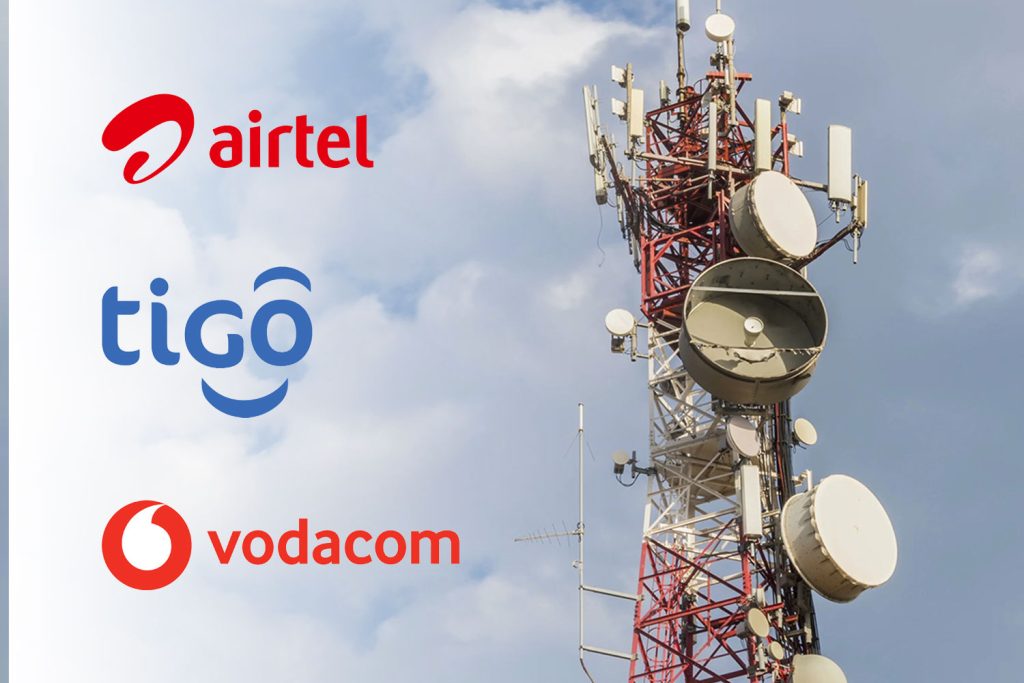In a significant move to improve the nation’s telecommunications sector, the Tanzanian government inked a pivotal agreement with leading telecom operators on Monday. The deal, valued at 82.5 Billion TZS Telecom Deal, is a combination of 50 billion TZS that covers the cost of using the existing infrastructure since its inception. Furthermore, the telecom giants have pledged an additional investment of 32.5 billion TZS to enhance the infrastructure further.
The formal agreement was sealed in a ceremony in Dar es Salaam, marking a collaborative effort between the Ministry of Information, Communications, and Information Technology and a Consortium of Telco Operators. The consortium comprises notable players like Airtel Tanzania, Honora Tanzania (Tigo), and Vodacom Tanzania.
This historic agreement, initiated on October 4, 2011, aimed to augment the telecommunications infrastructure across the country, focusing on extending the Optic Fibre Cable Network to areas previously unserved by the national network—however, the implementation journey faced several hurdles, necessitating further dialogues between the involved parties.
During the ceremony, the Consortium committed to a payment of USD 20 million spread over five years, equating to approximately 50 billion TZS, for the usage of the infrastructure. They also pledged an additional USD 13 million, about 32.5 billion TZS, for continued infrastructure development.
A notable highlight of the event was the inclusion of Vodacom Tanzania into the Consortium, showcasing a strengthened alliance between the private sector and the government. This alliance aims to extend communication services to the populace, thereby fostering economic growth.
The agreement will see the Consortium transfer around 3,000 kilometres of communication infrastructure to the government’s hands. Meanwhile, they will retain a portion of the infrastructure to provide communication services for a specific period, aiding in recovering their initial investment.
This infrastructure will be integrated into the National ICT Broadband Backbone, broadening the scope of service provision. The government has set ambitious targets to escalate the national fibre optic network’s capacity and reach, with a vision of achieving nationwide coverage by the end of 2024. The ultimate goal is to ensure that 85% of Tanzanians can access high-speed internet by 2025.
Our take
The sealed 82.5 Billion TZS Telecom Deal between the Tanzanian government and significant telecom operators is more than a hefty financial agreement. It’s a promise of a digitally inclusive future for the average Tanzanian. This deal, which encompasses a significant investment in telecommunications infrastructure, is a cornerstone for bridging the digital divide that exists not just in Tanzania but in many parts of Africa.
For the average Tanzanian, this agreement symbolises a step towards a future where digital connectivity is not a luxury but a basic necessity. The pledge to extend the Optic Fibre Cable Network to underserved areas is particularly noteworthy. It’s an acknowledgement of the fact that digital inclusivity is crucial for societal development. By bringing high-speed internet to remote locations, the government and telecom operators are not just providing a service but opening doors to a world of opportunities.
Education, healthcare, and business sectors benefit immensely from improved telecommunications infrastructure. With better internet connectivity, students in remote areas can access online educational resources, enhancing their learning experience. Similarly, healthcare providers can leverage telemedicine services, which have become increasingly vital, especially after the global health crisis. Small business owners, too, can expand their operations beyond local markets, reaching a broader customer base online.
Including Vodacom Tanzania in the Consortium and the commitment to invest further in infrastructure development are positive indicators of a public-private partnership model that can work effectively. It’s a testament to what can be achieved when the government and private sector come together with a shared vision of digital transformation.
Moreover, the government’s ambitious goal of ensuring that 85% of Tanzanians have access to high-speed internet by 2025 is not just a target; it’s a statement of intent. It underscores the government’s recognition of the role of ICT in economic growth and its commitment to making Tanzania a digitally competitive nation.
However, while this deal is a step in the right direction, the momentum must be maintained. The practical implementation of the agreements and the expedited completion of the Investment Agreement are crucial for realising the digital Tanzania vision.
In conclusion, the 82.5 Billion TZS Telecom Deal is not just a financial transaction; it’s an investment in the future of Tanzania. For the average Tanzanian, it’s a beacon of hope for a digitally inclusive society, where the benefits of the digital age are not confined to urban areas but are shared equitably across the nation.
Also Read – Tanzania Digital Economy: Unveiling the Fiber-Optic Future

